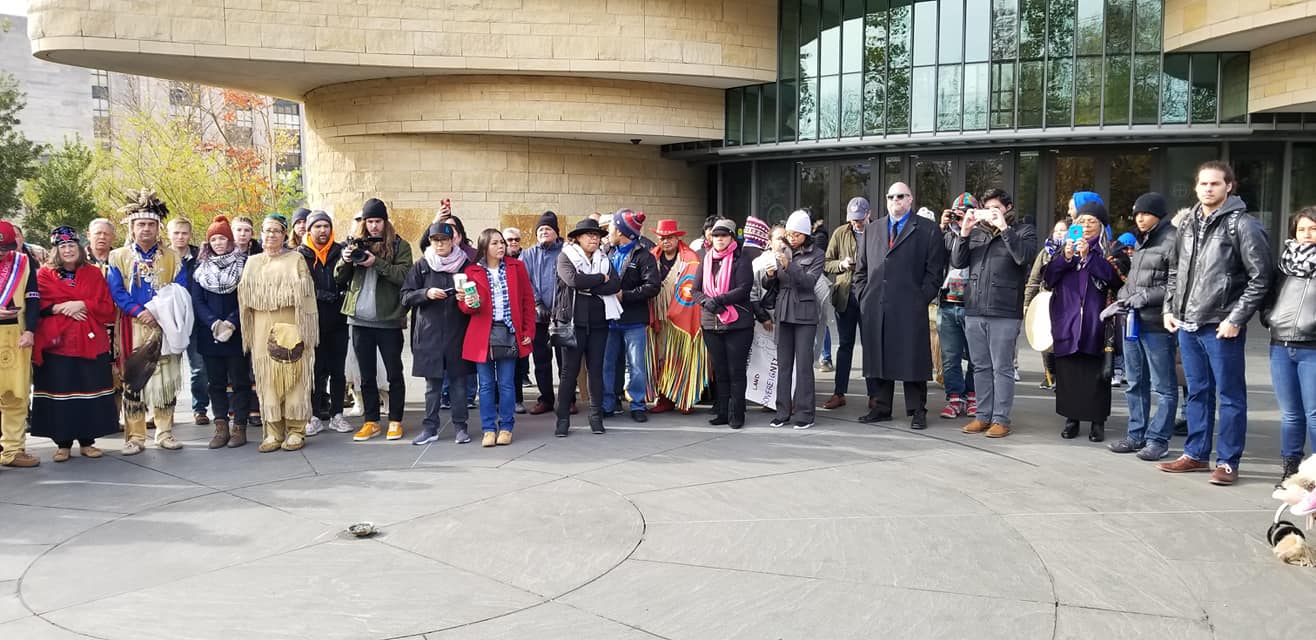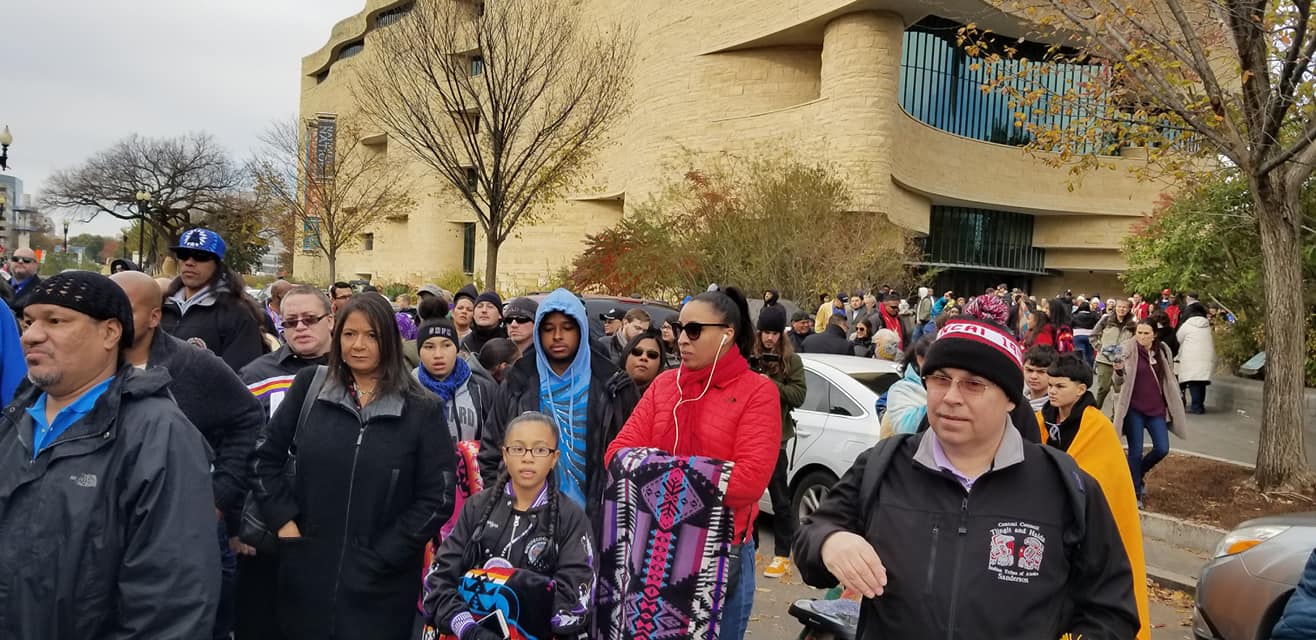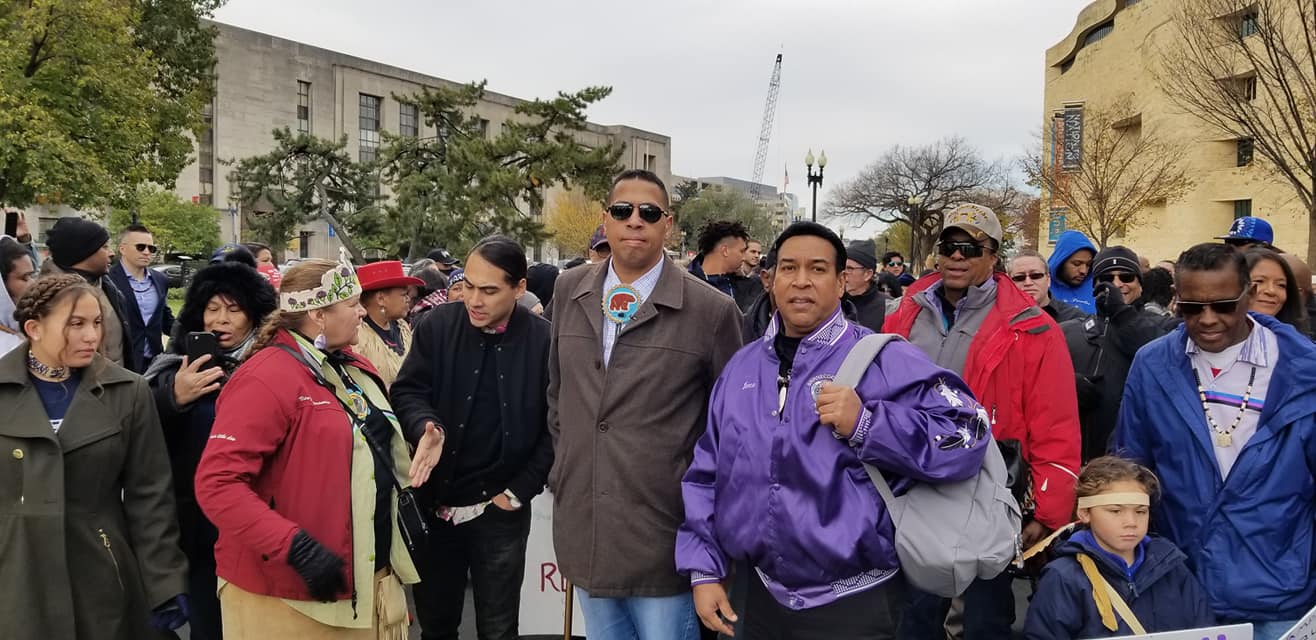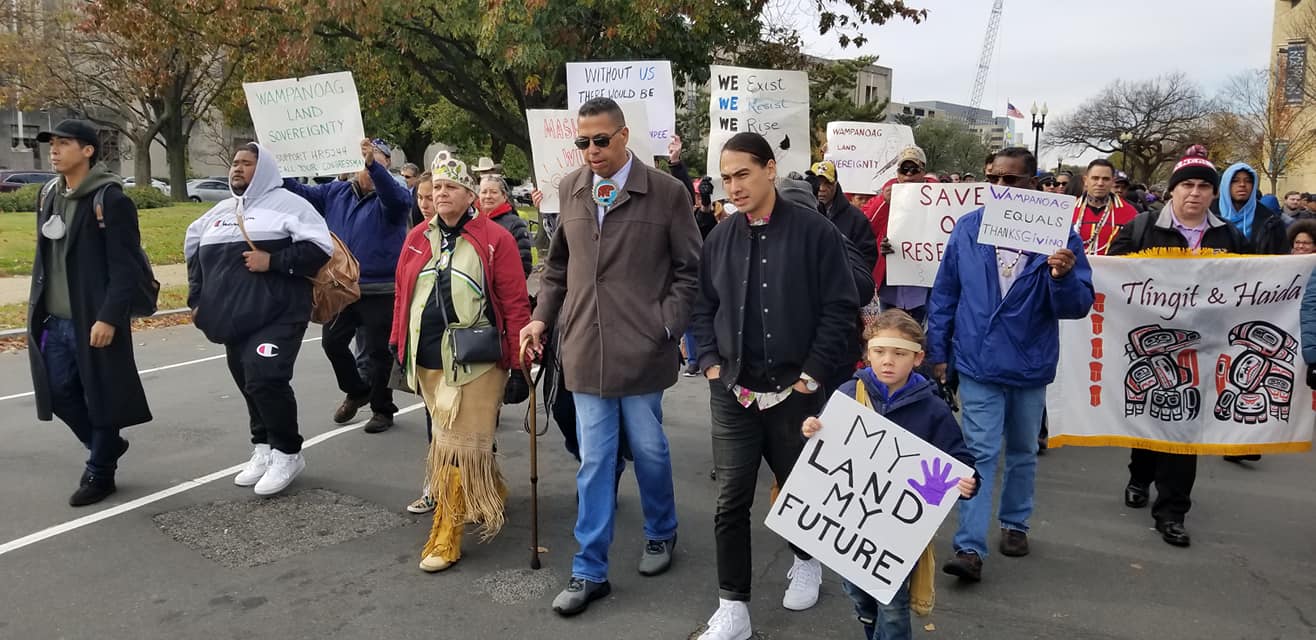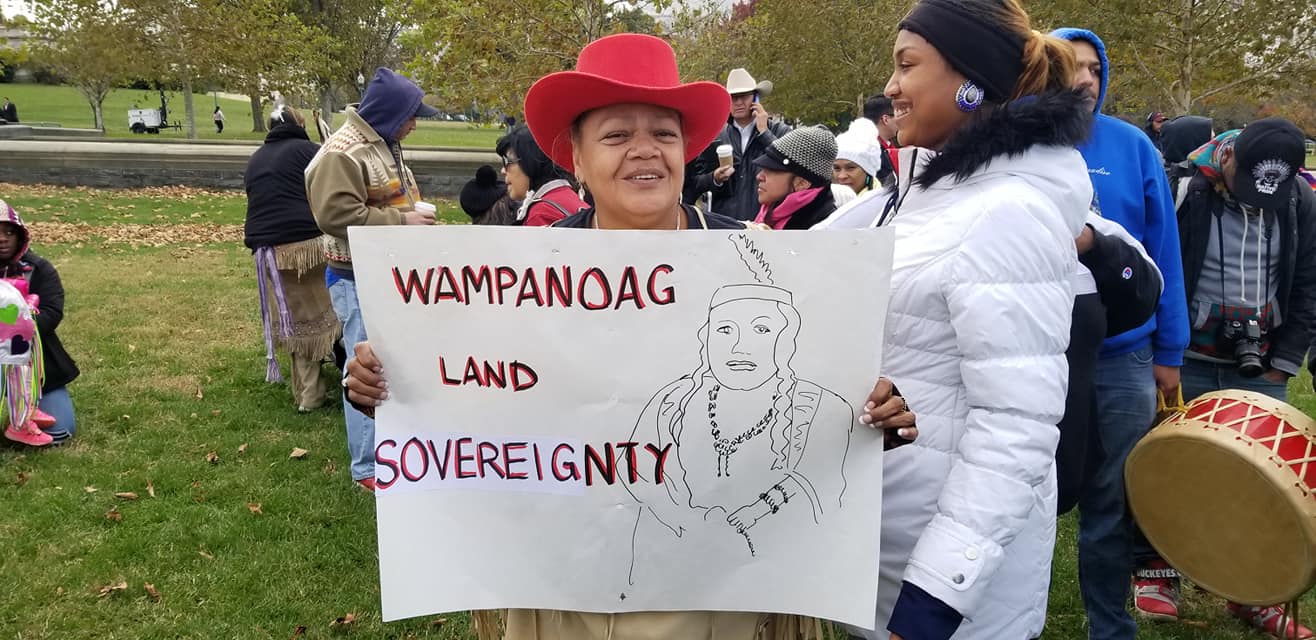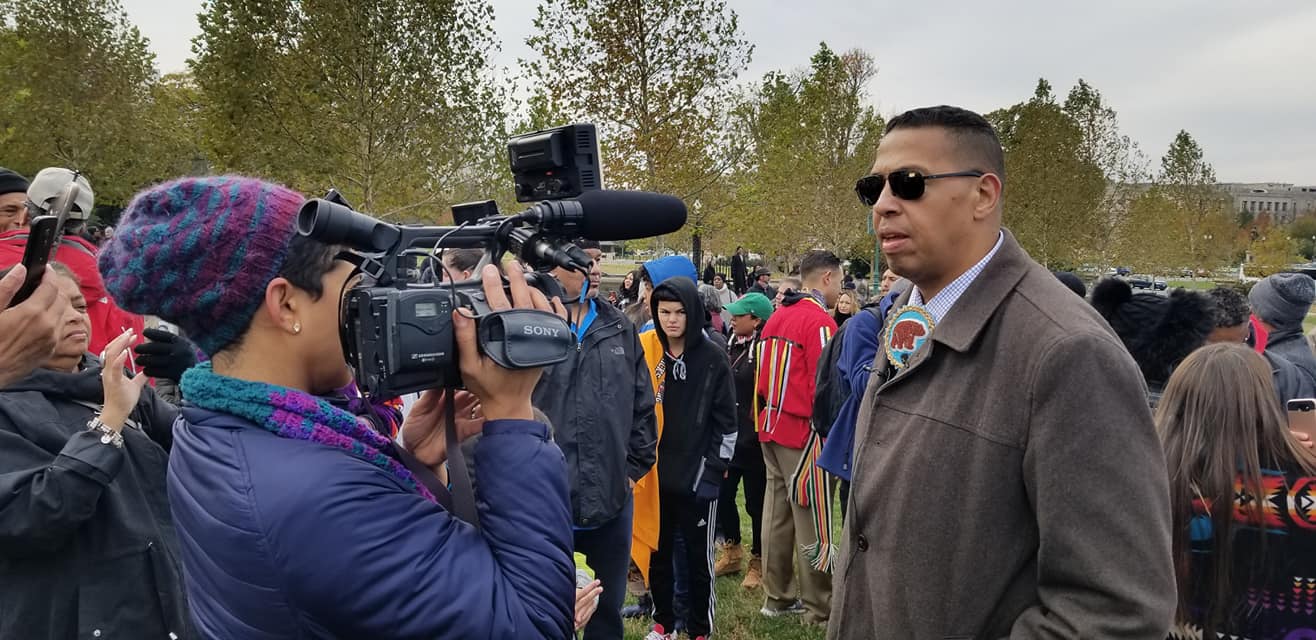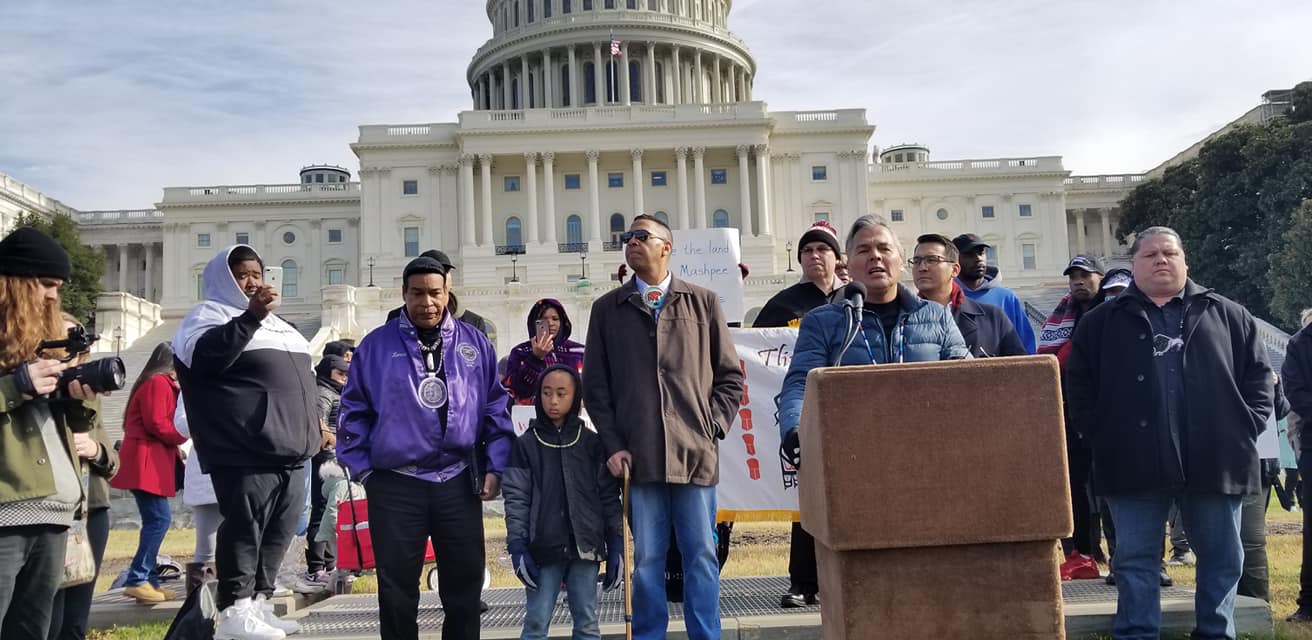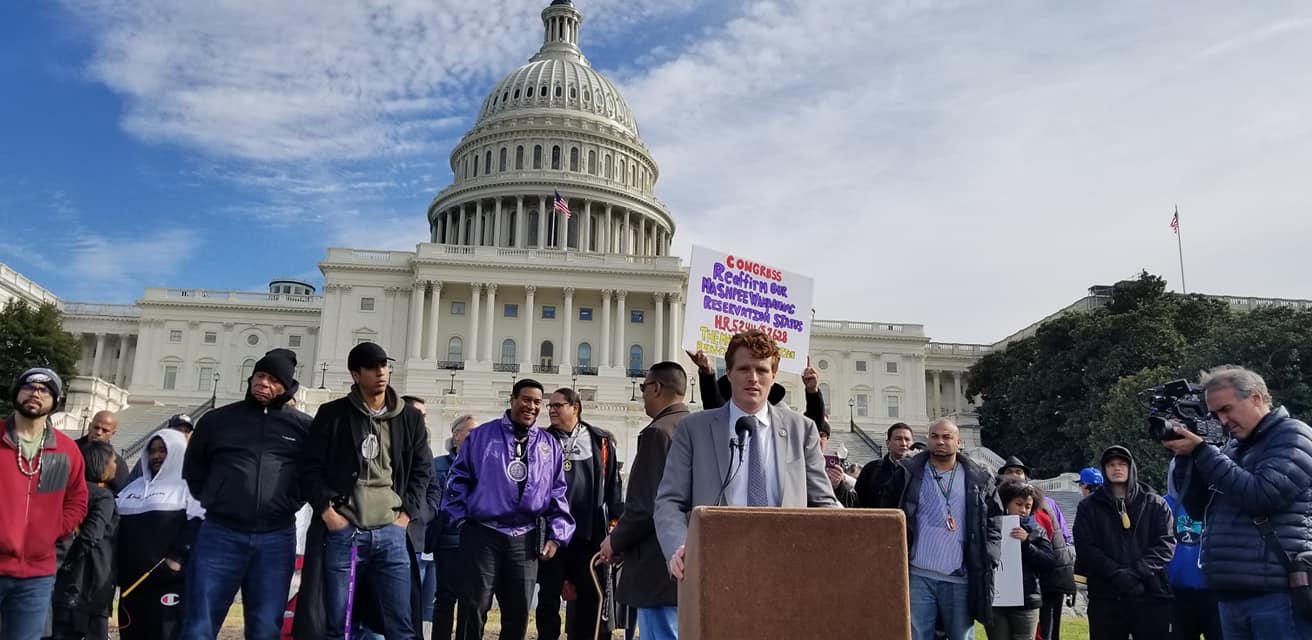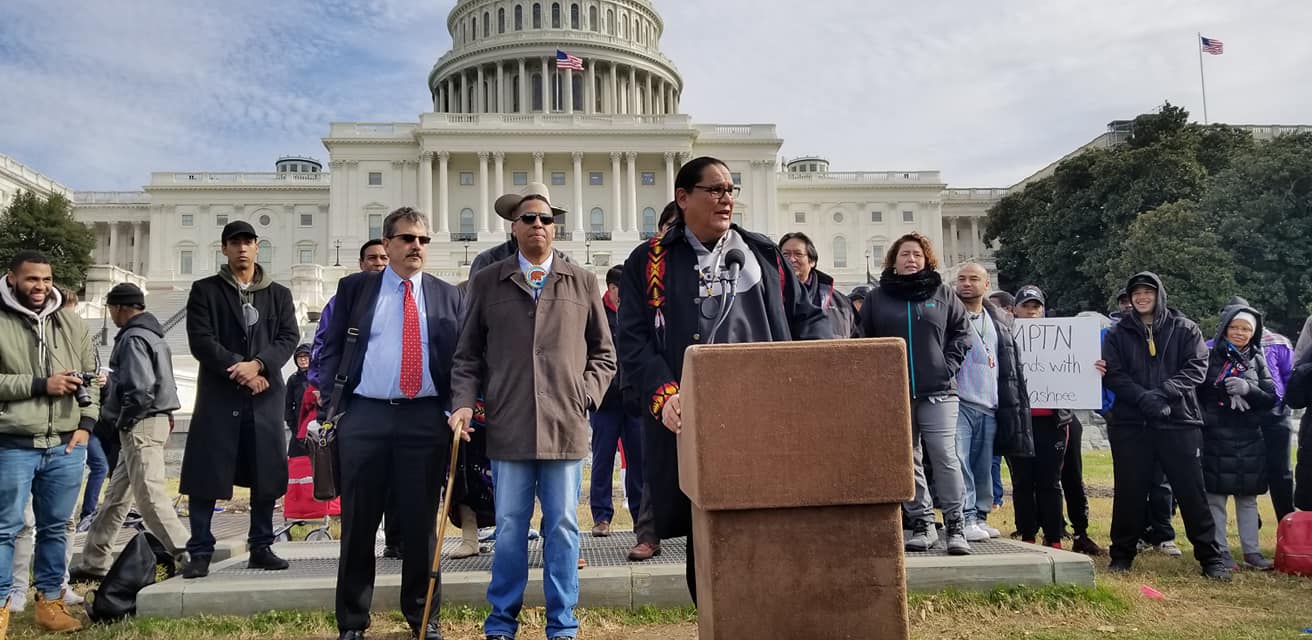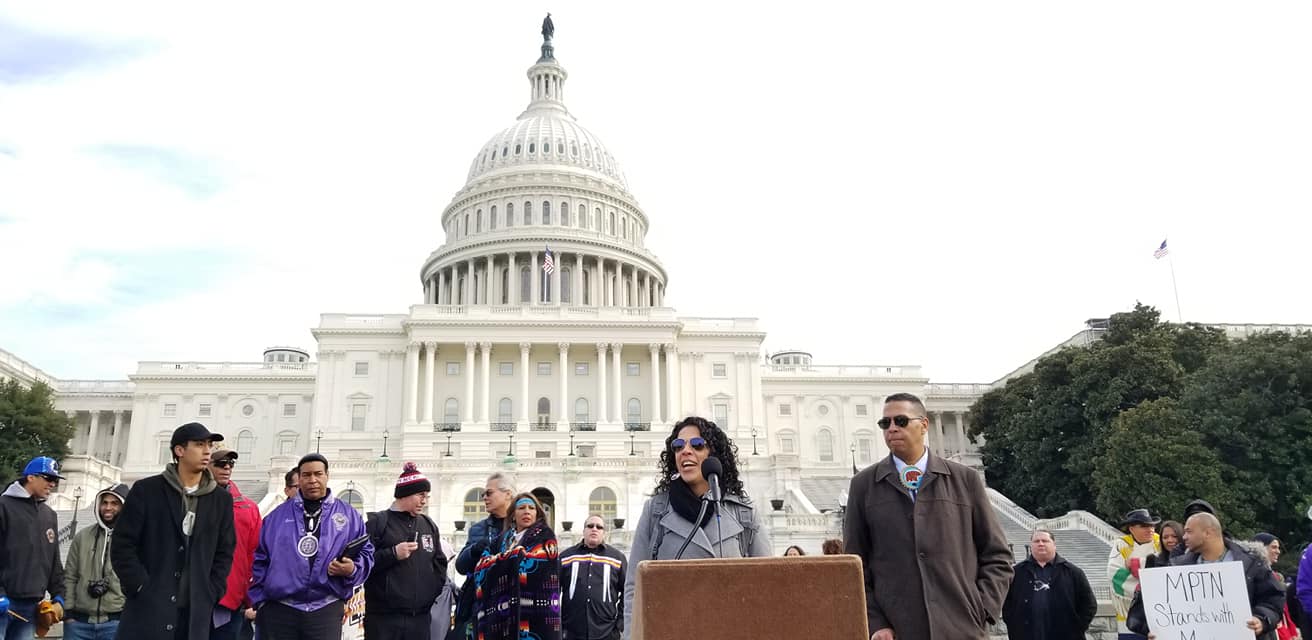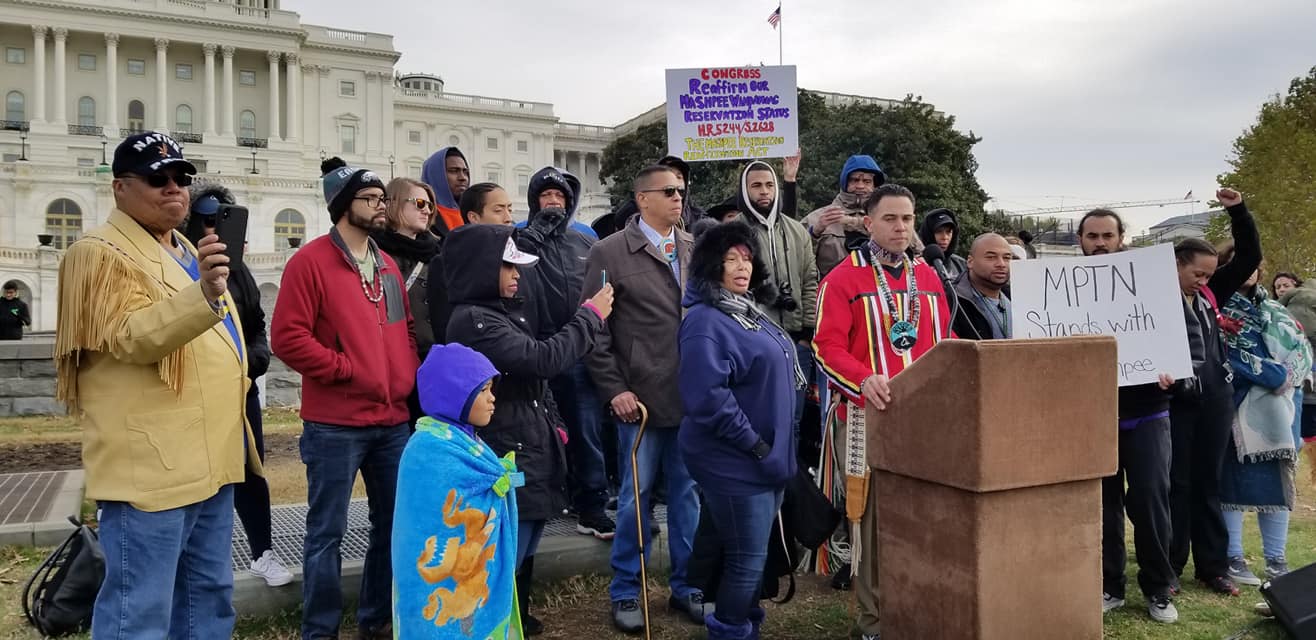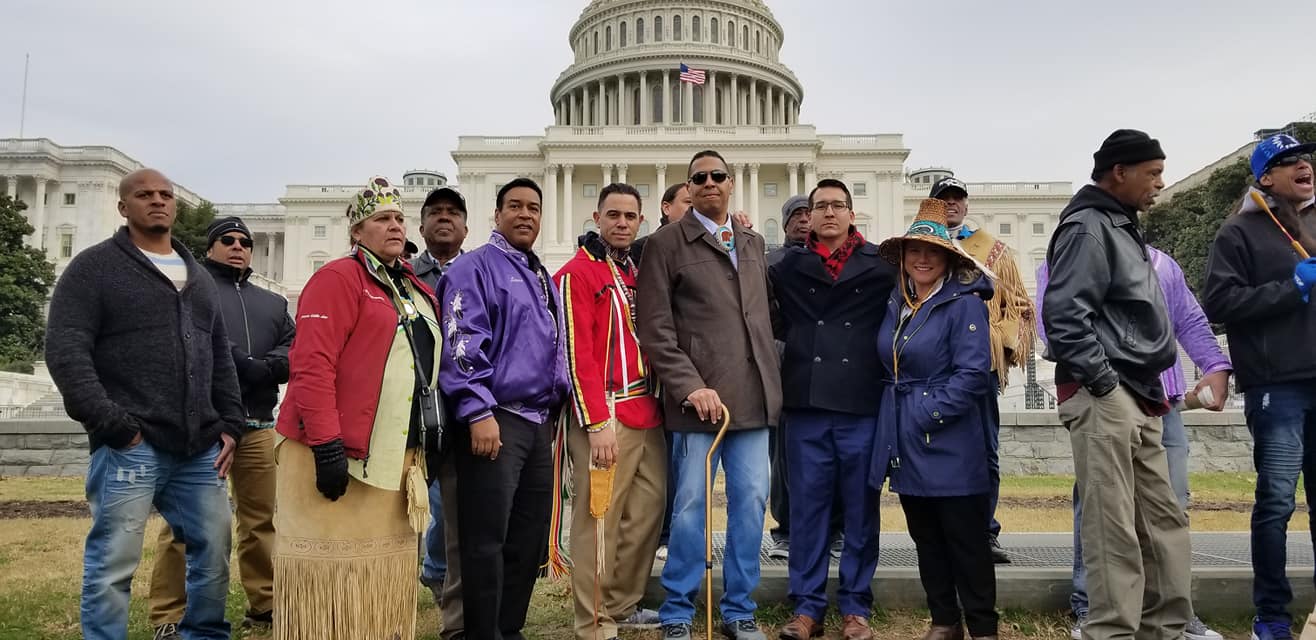Don’t Take Our Reservation: Mashpee Wampanoag and Allies March on the Capitol
A week before Thanksgiving, members of the same tribe who helped the pilgrims survive 400 years ago stood before the nation’s Capitol Building. But instead of celebrating, they spoke out against the Trump administration’s decision to take their reservation away.
On the morning of November 14 over 200 members of the Mashpee Wampanoag tribe, their allies, and supporters marched from the National Museum of the American Indian to the Capitol. They sang traditional songs, chanted slogans and held signs speaking out against the Department of the Interior’s September 7 announcement revoking the trust status of 321 acres of Mashpee land.
“What we’re seeing is a direct assault and attack on Indigenous people’s sovereignty,” Tribal Chairman Cedric Cromwell said. “And sovereignty’s a powerful word.”
The Department of Interior approved the Mashpee Wampanoag tribe’s application to put two parcels of land into trust status in 2015. The land in Mashpee and Taunton on Cape Cod would house a 123-unit elder and tribal housing facility and most notably a $1 billion casino and hotel complex.
Rival business owners and casino developers blocked this by suing the government, saying the tribe was not eligible to have land placed into trust according to a 2009 U.S. Supreme Court ruling, Carcieri v. Salazar. In that case the Supreme Court ruled land could only be placed into trust status for tribes that were included in the 1934 Indian Reorganization Act.
In the Mashpee case, the court ruled in favor of the rival business owners and developers, saying the Mashpee Wampanoag didn't receive federal recognition until 2007 and so were not eligible to have trust land. On September 7, the Department of Interior formally took the tribe’s land out of trust status.
At the Mashpee Wampanoag rally, Vice Chair Jessie Little Doe Baird spoke of the irony that once the government came and took their children away because they were too Indian. Now they take their trust status away because they're not Indian enough.
She also spoke of the 127 other tribes that were recognized after 1934 and how the government will soon come after them.
“It's coming. It's on. And it's not polite. There are days to be polite and there are times that that does not pay off. It has not paid off for us as a people to be polite.”
“This is where we’re at. So I'm telling you today, if we don't stand up together, not just say it and talk about it, but be about it, they're coming for all of us. We can't let that happen. And as a Mashpee Wampanoag woman and as an Indigenous person and as a human being-we need to stand together.”
U.S. Representative Bill Keating, D-Massachusetts, co-authored legislation to reaffirm the trust status, H.R. 5244 and S. 2628. He spoke of the bipartisan support the tribe has in Congress.
“We’re here because the administration has made a decision to go in one direction and Congress is here to try and straighten that out,” he said.
Rep. Joe Kennedy III, D-Massachusetts, and another author of the legislation, also spoke briefly about the unfairness suffered by the Department of Interior decision.
Additionally, five representatives from the National Congress of American Indians spoke in support of the Mashpee: Aaron Payment (1st Vice President of NCAI and Chair of the Sault Ste. Marie Tribe of Chippewa Indians) Clinton Lageson, (NCAI Co-Chair for Alaska, Kenaitze Indian Tribe Treasurer) Larry Wright Jr., (NCAI Great Plains Vice President and Chairman of the Ponca Tribe of Nebraska) Rob Sanderson Jr., (Tlingit and Haida Central Council, Co-Chair for Alaska NCAI) and Lance Gumbs (Senior Council Member Trustee for the Shinnecock Indian Nation, Regional Vice President for the Northeast, NCAI).
Members of other tribes facing land into trust issues were honored, in particular the Mashantucket Piquot Tribe and the Narragansett Indian tribe, including Chief Dean Stanton, as well as tribes from Alaska.
Among the many tribal leaders who spoke, Quinault President Fawn Sharp from Washington gave perhaps the most passionate speech. She pointed out how our country, under the current administration, is moving toward an era of termination, which she compared to a pit filled with flawed beliefs.
“I call out to this country,” she said, “get out of the muck and mire and join the nations of the world, around the planet, that recognize the rights of Indigenous people to live as the Creator intended. That is our call to action: get out of that pit.”
She closed her speech by calling on all Indigenous people to rise in order for the country to thrive:
“While this country continues to be corrupted and polluted and degraded, this country’s red nations are rising. And the average citizen is going to follow our lead and they are following our lead and they are starting to recognize that what we hold dear are the basic principles that this country was built on. And this country will continue to thrive. So together we stand. We’re going to continue to stand. We will stand eternally and we are with you humbly, respectfully and powerfully. Thank you.”
As the Eastern Sons Drum Group led the gathering in the American Indian Movement honor song, people began pointing skyward. Circling high above, a hawk rode thermals, absorbing the prayers and carrying them to the spirits of our ancestors, evidence the gathering had power.
Cromwell asked all present to contact their representatives in Congress and urge them to vote in favor of H.R. 5244, and S. 2628, the Mashpee Wampanoag Tribe Reservation Reaffirmation Act.
The tribe who once helped the Pilgrims survive their first, harsh winter, now ask the public to help them survive the current season of harsh termination practices brought on by an administration with little compassion for Native people and even less understanding of their cultures.
By Frank Hopper, Indian Country Today
